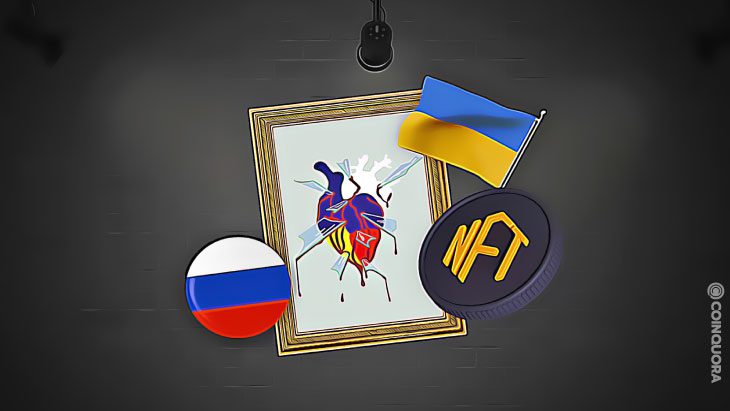- Meta History Museum of war displays the NFT museum in support of Ukraine.
- NFT museum displays NFTs of real wartime events.
- The NFT sale helps to raise donations for Ukraine.
Since the war on Ukraine started, several crypto donations, art protests, NFT collections, and other charity and welfare activities overwhelmed the Ukrainian community through their generosity. To add to the list, Ukraine’s Ministry of Digital Transformation launched an NFT museum in the Meta History Museum of War.
The NFT museum hosted on the Polygon and Ethereum network showcases the reality of war events in chronological order.
Alex Bornyakov, the Deputy Minister of Digital Transformation tweeted about the launch of the NFT museum. He said that IT, NFT, and blockchain are working together to preserve the statehood and history of Ukraine.
Today IT, blockchain and NFT are the tools that work to preserve the statehood and history of Ukraine. With the support of our partners we’ve launched the NFT-museum @Meta_History_UA. Rebuilding the country requires modern solutions. Check here 👉 https://t.co/6iCMdBvIyw
— Alex Bornyakov (@abornyakov) March 25, 2022
The Museum of War also tweeted a post saying that disinformation was being used by Russia along with deadly military weapons in Ukraine. It further added the NFT museum aims to keep the memory of real wartime events alive through blockchain and raise donations to support Ukraine.
Disinformation is used by russia on a par with deadly military weapons in Ukraine. The NFT-museum is based on a deep intention to keep the memory of real wartime events via blockchain and raise charitable donations to support Ukraine. pic.twitter.com/2KB9HgIDsJ
— META HISTORY: Museum of War (@Meta_History_UA) March 27, 2022
Notably, the NFT museum neatly presents the chronological order of the war that began on February 24. NFTs depicting screengrabs of warline images with dates and the source of news reports are also clearly displayed. It shows NFTs with titles such as “Ukraine conflict: Russia announces special military operation in Donbas” and “Those who shout about Nazism in Ukraine act like actual Nazis.”
Moreover, NFTs showcase images of events like President Zelensky’s meeting with Ukraine’s security council members, the attack on Ivano-Frankivsk airport, the Chernobyl nuclear plant attack, etc.
Each NFT costs 0.15 ETH, which equals $490 and the sale goes towards military and civilian aid via cryptocurrency wallets of the Ministry of Digital Transformation.
So far, cryptocurrencies and NFTs have played a vital role in supporting Ukraine with millions of crypto received via Decentralized Autonomous Organizations (DAOs).


